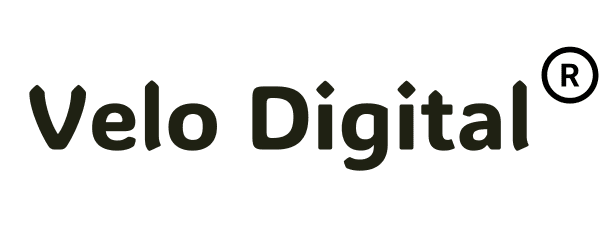Explore the Best Email Marketing Tools to Elevate Your Campaigns
In the ever-evolving digital marketing landscape, email marketing remains one of the most powerful tools for businesses to connect with their audiences, drive conversions, and foster customer loyalty. As we step into 2025, the competition among email marketing platforms is fiercer than ever, with each tool offering unique features, integrations, and innovations designed to help businesses stand out.
Whether you’re a small business owner, a seasoned marketer, or an enterprise-level professional, selecting the right email marketing platform can make all the difference. This article dives into the top 10 email marketing tools for 2025, comparing their features, pricing, and pros and cons to help you make an informed decision.
Why Email Marketing Matters in 2025
Before we dive into the list, let’s briefly explore why email marketing is more relevant than ever in 2025. With the rise of AI, automation, and personalization, email marketing has evolved into a highly targeted and efficient channel for reaching customers. Here are a few reasons why it’s a must-have in your marketing strategy:
- Personalization at Scale: Advanced AI-powered tools now allow businesses to create hyper-personalized campaigns based on customer behavior, preferences, and demographics.
- Automation Capabilities: From welcome sequences to abandoned cart reminders, automation is key to saving time and increasing conversions.
- High ROI: Email marketing consistently delivers one of the highest returns on investment (ROI) among digital marketing channels.
- Integration with Other Tools: Modern email platforms seamlessly integrate with CRM systems, e-commerce platforms, and other marketing tools, creating a unified workflow.
Top 10 Email Marketing Tools for 2025
Let’s break down the best email marketing tools for 2025, highlighting their unique features, pricing, and pros and cons.
1. Mailchimp
Best For: Small businesses and startups
Why It Stands Out: Mailchimp is one of the most popular email marketing tools on the market, known for its user-friendly interface and all-in-one marketing platform. It offers email marketing, social media management, and even CRM features.
Features:
- Drag-and-drop email builder
- Pre-designed templates
- Automation workflows
- Analytics and reporting
Pros:
- Free plan available for small lists
- Easy to use for beginners
- Extensive integration library
Cons:
- Limited advanced automation features for enterprises
- Pricing can escalate with larger lists
Pricing: Free plan available; paid plans start at $11/month.
2. ConvertKit
Best For: Creators, bloggers, and solopreneurs
Why It Stands Out: ConvertKit is tailored for creators who want to build and monetize their audiences. It’s known for its powerful automation features and seamless integration with popular platforms like WordPress and Shopify.
Features:
- Advanced email automation
- Landing page builder
- Subscriber tagging and segmentation
Pros:
- Highly customizable for niche audiences
- Excellent customer support
- Clean, minimalist interface
Cons:
- Limited template options
- No built-in CRM
Pricing: Starts at $9/month for up to 300 subscribers.
3. ActiveCampaign
Best For: Mid-sized to large businesses
Why It Stands Out: ActiveCampaign is a favorite among marketers who need robust automation and CRM features. Its advanced lead scoring and sales automation make it a standout choice for enterprises.
Features:
- AI-powered automation
- Lead scoring
- Integrated CRM and sales automation
Pros:
- Highly scalable for growing businesses
- Advanced segmentation and personalization
- Extensive third-party integrations
Cons:
- Steeper learning curve for beginners
- Pricing can be expensive for small teams
Pricing: Starts at $29/month for up to 500 contacts.
4. HubSpot Marketing Hub
Best For: Enterprises and large teams
Why It Stands Out: HubSpot is a comprehensive marketing, sales, and CRM platform that includes advanced email marketing capabilities. It’s perfect for businesses that want an all-in-one solution.
Features:
- AI-driven email content suggestions
- Advanced analytics and reporting
- Seamless integration with HubSpot CRM
Pros:
- All-in-one platform for marketing, sales, and customer service
- Highly customizable and scalable
- Robust support and resources
Cons:
- Expensive for small businesses
- Overwhelming for teams that only need email marketing
Pricing: Starts at $50/month for the Marketing Hub.
5. Klaviyo
Best For: E-commerce businesses
Why It Stands Out: Klaviyo is specifically designed for e-commerce brands, offering deep integration with Shopify, WooCommerce, and other platforms. It’s known for its powerful segmentation and abandoned cart automation.
Features:
- Pre-built e-commerce automation sequences
- Deep Shopify integration
- Predictive analytics
Pros:
- Tailored for online stores
- High-converting email templates
- Excellent segmentation capabilities
Cons:
- Limited features for non-e-commerce businesses
- Pricing increases with list size
Pricing: Free plan available; paid plans start at $25/month.
6. Sendinblue
Best For: Businesses on a budget
Why It Stands Out: Sendinblue is a cost-effective option that offers unlimited emails even on its free plan. It’s perfect for small businesses that want to test the waters without breaking the bank.
Features:
- Unlimited emails on the free plan
- Drag-and-drop email builder
- Basic automation workflows
Pros:
- Affordable pricing
- Generous free plan
- Easy to use for beginners
Cons:
- Limited advanced features for large businesses
- Basic reporting capabilities
Pricing: Free plan available; paid plans start at $25/month.
7. Campaign Monitor
Best For: Professional marketers
Why It Stands Out: Campaign Monitor is a professional-grade email marketing tool with advanced personalization and analytics. It’s ideal for marketers who want precision and control over their campaigns.
Features:
- Advanced segmentation
- Dynamic content personalization
- In-depth analytics
Pros:
- Highly customizable
- Professional-grade features
- Responsive customer support
Cons:
- No free plan
- Can be overwhelming for beginners
Pricing: Starts at $50/month for up to 500 contacts.
8. Mailjet
Best For: Collaborative teams
Why It Stands Out: Mailjet is designed with collaboration in mind, offering real-time collaboration features for teams. It’s also known for its excellent deliverability rates.
Features:
- Real-time collaboration
- Email templates with a drag-and-drop editor
- Analytics and tracking
Pros:
- Great for teams working remotely
- Easy to use for beginners
- High deliverability rates
Cons:
- Limited automation features
- No built-in CRM
Pricing: Starts at $15/month for up to 500 contacts.
9. AWeber
Best For: Bloggers and content creators
Why It Stands Out: AWeber is a classic email marketing tool with a focus on simplicity and reliability. It’s a great choice for bloggers and content creators who want to build and engage their audiences.
Features:
- Pre-designed email templates
- Stock image library
- Basic automation workflows
Pros:
- Reliable and easy to use
- Affordable pricing
- Good customer support
Cons:
- Limited advanced features
- Outdated interface compared to newer tools
Pricing: Starts at $19/month for up to 500 contacts.
10. GetResponse
Best For: All-in-one marketing needs
Why It Stands Out: GetResponse is more than just an email marketing tool—it offers a full suite of marketing features, including landing pages, webinars, and a CRM.
Features:
- All-in-one marketing platform
- Webinar hosting capabilities
- Built-in landing page builder
Pros:
- Comprehensive marketing suite
- Affordable pricing
- Great for lead generation
Cons:
- Can be overwhelming for users who only need email marketing
Pricing: Starts at $12.75/month for up to 1,000 contacts.
How to Choose the Right Email Marketing Tool for Your Business
With so many excellent options available, choosing the right tool can feel overwhelming. Here’s how to make the decision easier:
- Assess Your Needs: Identify the features you can’t live without. Are you looking for advanced automation, e-commerce integration, or a free plan?
- Consider Your Budget: Compare pricing models and calculate the cost based on your list size and growth expectations.
- Test Before Committing: Many platforms offer free trials or free plans. Take advantage of these to get a feel for the tool before committing.
- Check Integration Options: Ensure the platform integrates with your existing tools, such as your CRM, website, or e-commerce platform.
Final Thoughts: Elevate Your Email Marketing in 2025
Email marketing is more than just sending emails—it’s about building relationships, driving revenue, and growing your business. With the right tool, you can create campaigns that resonate with your audience, save time with automation, and achieve remarkable ROI.
Whether you’re a small business owner or a seasoned marketer, the tools on this list offer something for everyone. Take the time to explore your options, and don’t hesitate to reach out if you need further guidance. Your perfect email marketing partner is just a click away!


